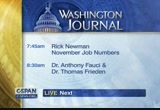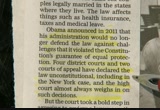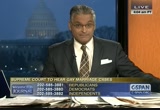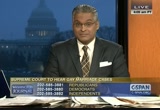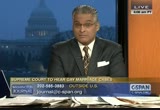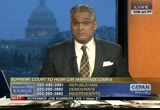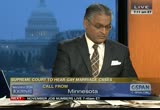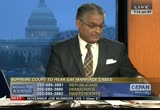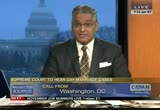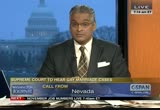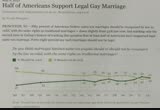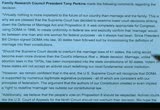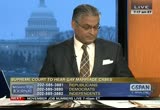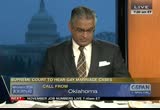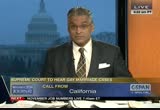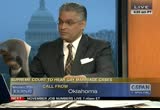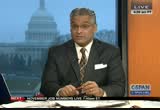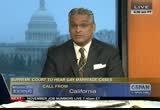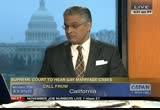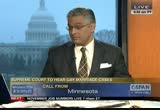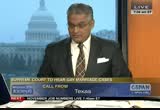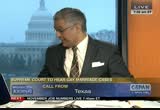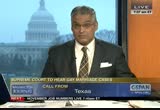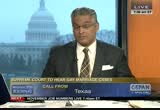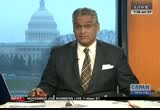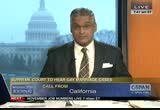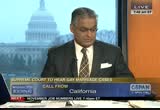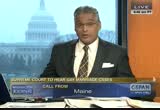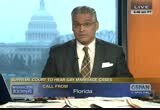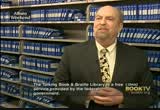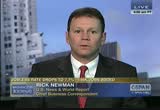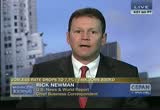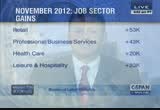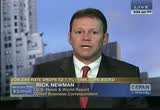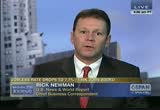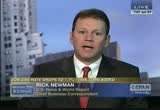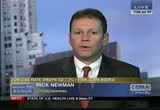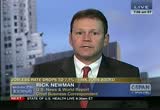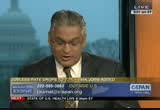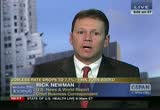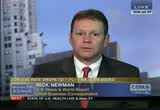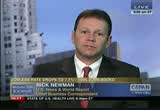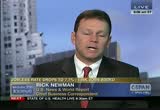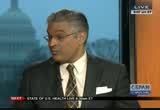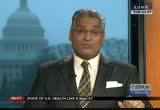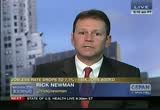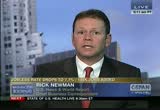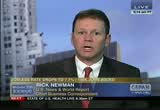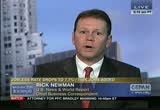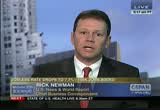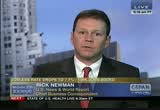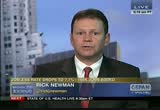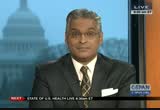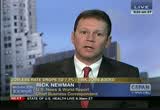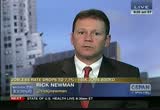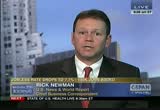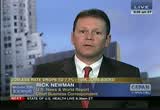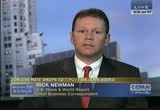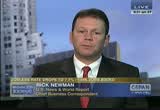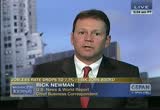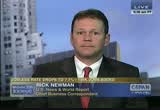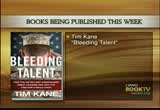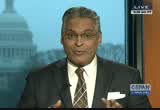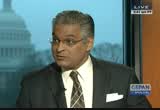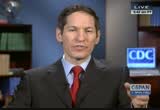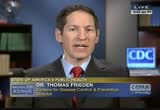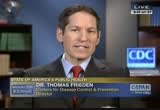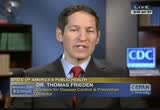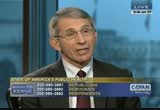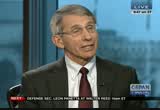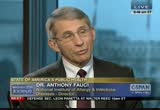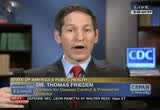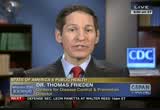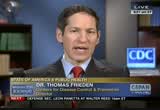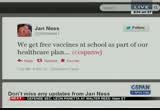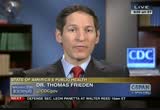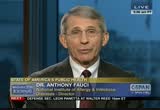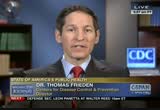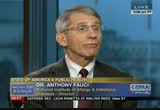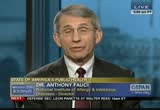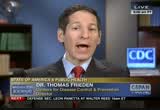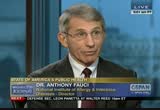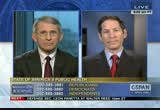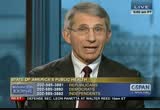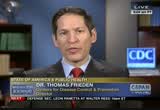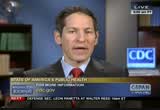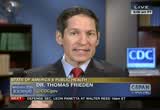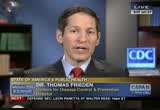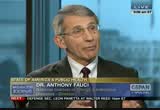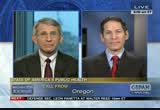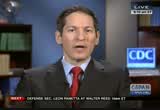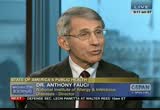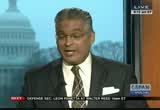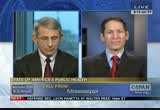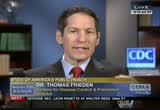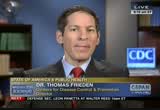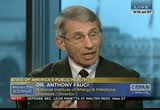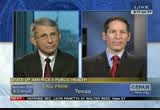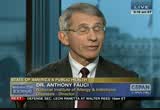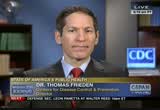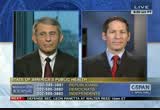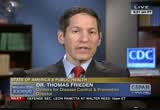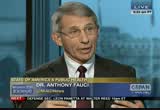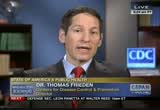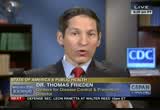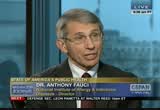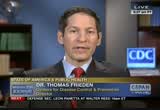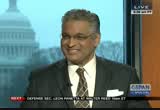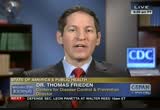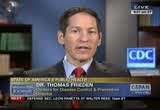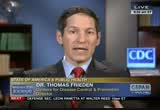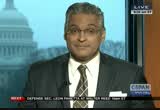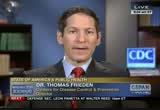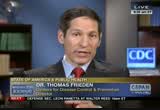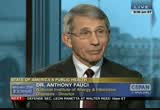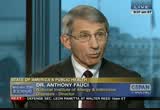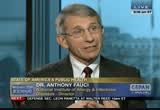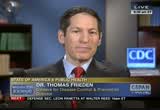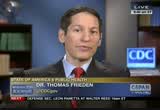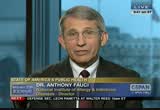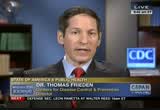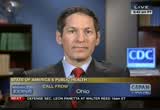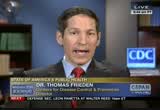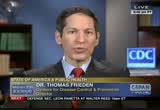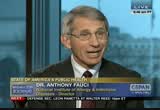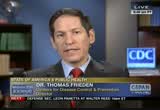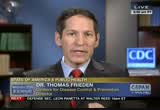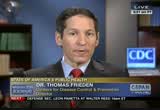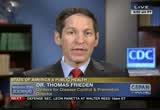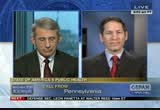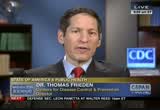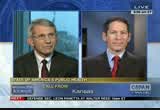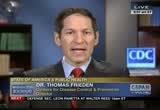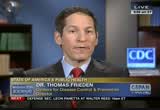tv Washington Journal CSPAN December 8, 2012 7:00am-10:00am EST
7:00 am
allergies and infectious diseases and the director of the centers of disease control and prevention examine the state of america's public health. "washington journal" is next. host: good morning. highlights from the news today. atop al qaeda leader was killed and in pakistan. aside from the unemployment rate unveiled yesterday, one of the bright spots is those ages 55-69 are holding onto jobs for logger. of time. the presidential inaugural committee -- a change from the 2008 inaugural. at the supreme court of for the
7:01 am
first 45 minutes, reaction to the decision to hear two cases regarding gay marriage. one with the defense of marriage act and the other looking at proposition 8. the first 45 minutes, if you want to weigh in on the decision of the supreme court, here is how you can do so. the numbers -- if you want to send us a tweet -- here is the front page of "the oakland tribune." that is the setting for one of the cases the justices will hear.
7:02 am
7:03 am
one woman as husband and wife, and the words bouse refers only to a person of the opposite sex who is a husband or wife. one of looking at a state militia and the other looking at a federal issue, two cases, and a decision expected by june. if you want to wait and, the numbers are on your screen. -- if you want to weigh in, the numbers are on your screen. tweets.also send us tweak this is from "the washington post."
7:04 am
7:05 am
a lot of democrats that did not believe in gay marriage, but we do not believe we should be able to stop anyone from mary in who they want. this is like the caliban. you have these right-wing groups. the right-wingers would be the taliban. there are a lot of things they do not want. this is how they believe it. in the end, got is the one to judge. host: this is the republican line. caller: i think it is interesting the last guy started off by saying he is against the idea of gay marriage but he calls us conservatives the taliban. if he happens to be a hyphenated american, most black people are against this.
7:06 am
martin luther king would have been against this. host: about the decision to the hear the cases, what do you think. caller: one of the things i find interesting is we never talk about the hundreds of thousands of men who have died and joe america because of sex outside of natural law. we rolled a " out once a year and add a couple of patches. throughout human history, every civilization knew that whenever homosexuality rises to prominence -- host: 1 deals with benefits to same-sex couples. way a in on those aspects. caller: might side of it comes
7:07 am
from working and enter a ministry called teen challenge. i went through the program myself. i called once before about this and got cut off halfway through. it is interesting people have such a visceral reaction to somebody who turns away from perversion or a bad lifestyle. the gay lobby does not like anybody to claim they were involved and then to a bed and turned away from it. i did it. i would have been dead by the age of 30 if i had not turned away from it. the cases individually, i have worked in construction, i have done jobs for homosexual couples. individually they are wonderful people. what they do a in of their bedrooms, i am and unsaying -- we are all sexual libertarians.
7:08 am
on a national level, i am against it. it is wrong. that is the way it is. host: on the republican line, and j.. let's go next to mark from florida on the democrats' line. caller: i believe that marriage is between a man and a woman. as far as the supreme court hearing this case, i do not have a problem with that. that is why we have courts in the country. host: are you surprised they're taking up two cases on this issue? caller: not really. this is a dental the forefront. host: from twitter -- bob is next on this issue.
7:09 am
caller: good morning. i only want to say that although i am against the gay lifestyle and i do not believe a danger of their marriage, i think our government should stick to the constitution. the state courts have nothing to say about it. we say no gay marriage, period. we should not go around and heard them. it is unnatural for a man to be with a man. i think we should have won solid law against it. host: why keep it at a government level and not at the state level? caller: look at what is going on now. we set a lot. everybody says, i interpret it this way or that way. it is causing more and more
7:10 am
7:11 am
good morning from minnesota on the democrats' line. caller: thank you for c-span. this is what i have not heard said by both -- most of the things i have listened to or watched between the debates on gay marriage. it is all legal documents. some states have the take a blood test. you have to get a marriage license from your state or county. when you get married, you get married in a church. % a church document with
7:12 am
witnesses. if you get a divorce, you cannot say i will wrap up this thing we signed a in church. you have to get attorneys and illegally get divorced. you can get married in your yard with anybody officiating with anyone who has a standard of officiating marriages, you can get married until the court house, on a boat, in another country. it is all legal. it does not have anything to do with a god and less it is in your heart. i think the whole structure of the debate should be what is legal and what is not. i hope the supreme court says anybody can be legally married. any person thinks. host: thank you for waking,
7:13 am
sean. this is the independent line. caller: i am actually in a gay marriage in washington, d.c. i think it should be upheld because that would give us the economic benefits we would not otherwise have. my partner and i live together, we function as a normal family. when we go to file taxes, we have to file separately. that makes us both have to have a higher tax than we normally would. i think it should be a matter of economics. you can call it a domestic partnership as long as you give us the same tax rights as a normal couple has. host: do either of you work for the federal government? caller: know, i used to be in the army. i was in there in the don't ask don't tell days. i am not entered the army
7:14 am
anymore. host: stephen is from las vegas on the democrats' line. caller: i just have to comment that the craziness of the culture war. my views are probably very left wing it. i have been watching all of the craziness go on. they are going on and on. this is all constitutional rights. i think it is crazy either party focuses on the ideology of the issue. we need to focus on the economic issues of our country and give everybody a constitutional right to live their life how they want to. host: what do you think about the current makeup of the court? caller: i think they honestly should just grant the rights whether at state level or
7:15 am
national level. if it starts state-by-state, that is how it should start. it is becoming more progressive, despite what a lot of people want to say. this we are a center-right country, i do not believe we are. i think this election just proved it. i think the only reason the war -- the right wing has gained a their benefits in 2012 is because they were angry about the economic issues at enter our country. host: may 8 of this year, taking a look at gay marriage. according to their headlines, half of the americans at the time supported gay marriage. 50% saying it should be valid. do you think they should or should not be recognized by the law as valid.
7:16 am
7:17 am
one perspective from the family research council. from twitter -- two cases on gay marriage to be decided by the supreme court. one dealing with the state level issue, when dealing with the defense of marriage act when it comes to federal policy. your chance to weigh in on this in the next half hour. parole from jacksonville, florida. -- earl from jacksonville, florida. caller: i think a lot of people forget it is bought about a gay lifestyle or straight lifestyle, it is about love.
7:18 am
i did not saying everybody will get married. not all straight people get married or gay people get married. i think they have an option to. it should not be as dramatic as it is in the news media and regular life styles. not all gay people want to get married or straight people want to get married. host: what are your thoughts about the supreme court looking at it? caller: i think the supreme court will say it is and discrimination. i think they will pass it. the military allows gays, and they will have some challenges with not being able to support the federal employees. they will have to have gay people live on bass and shop and do different things around the world. that is the main focus. host: the human rights campaign
7:19 am
also putting out a press release. the supreme court has announced it will hear arguments in the prop. 8 case. they will take up the defense of marriage act. a when will mark a decisive. in this movement's history. extreme right-wing leaders are going to rally around the announcement clamming the court cannot outpace public opinion. thankfully, the majority of americans support marriage equality. that is the statement from the human rights campaign. chief justice john roberts sang anthony kennedy will be the one to look at the decision and debate, deliberations go on the next year. june is an extended -- expected
7:20 am
time frame of when justices will reveal their decision making process. carolyn from tulsa, okla. on the republican line. caller: i think instead of having all this about a christian marriage or not christian marriage, they should give the gay people in validation of marriage. the churches are against it because of what is in the bible, not because they do not want people to get married. why not have two different forms of marriage? it all boils down to money. i know many days. i like most of the people i work with. there are good and bad people and both camps. we need to decide to give them equal rights, but not called it a christian marriage. maybe that would settle down the arguing.
7:21 am
i found it interesting the states can votes what they want by a majority. i have seen this happen on other things besides gay marriage. i am 73 and will be 74. i have seen many things happen in my lifetime. i would not be surprised for homosexuals to have a right to call a marriage. as far as legally, they can have woes drawn up and can also buy property together. i do not understand what it is accept money. when they tried to get a union going that the call christian, they know the christian bible does not agree with that.
7:22 am
maybe we could form another -- e know what i am trying to say. to work for taking my call. host: sacramento, florida. caller: i am a retired marine. i have been for the past years. yes or 72 years old. gay marriage has nothing to do with whether or not -- it is a matter of discrimination. we have a much larger problem of inter this country to worry about than whether people get
7:23 am
married. i think it is a waste of time for the supreme court. i hope the rest of the world -- i hope it catches up with the rest of society. host: your state has already made a decision that is being considered by the supreme court. caller: the supreme court should just looked away. just call it what it is, discrimination and let it rest. host: from twitter this morning -- there are about 100 people weighing in on facebook as well.
7:24 am
facebook.com/cspan. it is a way to have a conversation other than telephone. in north carolina on the independent line. caller: why do they not simply change the word of marriage to union, have a legal union and they can have the same benefits. get the word marriage out of there because that seems to be what offends everybody. -- take the word marriage out of there and call it a union between two individuals and to give them the same benefits. let's get on with this thing. this is getting ridiculous.
7:25 am
7:26 am
it should be a nationwide vote and majority wins. host: that is the case until california. caller: i understand that. instead of doing it one state or another, let every state put all at once and the majority wins, like it or not. whether i agree with it or whether i do not. there are plenty of laws i do not agree with. host: be you have opinions on the defensive marriage act? caller: it does matter what i think about it. give people the power to decide. host: "the new york times" saying --
7:27 am
7:28 am
7:29 am
partnership for whatever. they do not have the right to raise other people pose to children. marriages for procreation. if you want to have children, you have to marry a person of the opposite sex. how many people would allow two gay men to allow their children -- to go spend the night over -- to allow people to go to other countries and bring these babies over here to be raised by two men? would you allow your 3-year-old to spend the night with two gay men? that is what i have a problem with. they can call it marriage are partnership for what ever they want. if you want to have children, mary somebody of the opposite sex. keep the children out of it. host: what should the supreme court to a dentist? caller:-- what should the
7:30 am
supreme court do in this? caller: they should do the same thing as they did in the 2000 election. about nine people to call it. it should be a national referendum. host: here is fred on the independent line. caller: i think the supreme court should recognize this is an issue of the separation of church and state. there is no authority under statutes to grant holy matrimony. if there is a priest or a preacher or rabbi who is willing to perform the sacrament, that should be respected. they do not have the authority to grant holy matrimony. host: did you have an opportunity to vote when they
7:31 am
came to prop 8? caller: i did not vote. i probably would have of voted in favor of gay marriage. i think what we have in america now with no-fault divorce is essentially gay marriage. i do not see what the controversy is. you have given the state the authority to grant holy matrimony, i think you have stepped outside of the sacrament, which is the religious blessings. host: when it comes to the core's actions, should they keep it on the state level and make a decision that affects the states or should it be a larger issue when it comes to discussion about gay marriage across the united states? caller: says all popular elections that have ever been held have opposed the sanctioning of gay marriage, i think the court should at respect the will of the people.
7:32 am
personally, i think it should be up to religious leaders to decide whether or not the sacrament is something they and their god are willing to grant to an individual couple. host: on the democrats' line from minnesota. caller: i would like to say i do not think the supreme court should be involved. since they are, i think they should realize and really think about what they are doing to the religion. there are going to cause a lot of problems. if we believe in the bible -- this is not my personal -- this is the bible. it says a whole country was destroyed of what they are trying to put together right now. they should call it not a marriage, but a union of two people. they could rephrase it. marriage is not what they are trying to do.
7:33 am
we have a religion, and that is what the united states is based on and we should try to keep it that way. if the supreme court does approve this, it will cause a whole bunch of trouble. the world actually might be coming to an end soon. host: one of the court cases will deal with the defense of marriage act that will deal with the federal government and the other deals with proposition 8, specifically from california. the numbers are on your screen. you can also weigh in on twitter and facebook as well. in 15 minutes we will talk about other headlines in the paper coming to the jobless rate, dipping to 7.7%. that being shaded on what is going on with decisions by the fiscal cliff.
7:34 am
7:35 am
try to educate myself a lot more on the whole -- let me get right to the point. i think it should be a state decision. the supreme court should allow the states to make the kind of a decision. giving more people -- in giving more power to the government to regulate this on a national level will create so many issues down the road, and it probably a lot of issues in the immediate -- the reason we even got to this. is because we get some much power to the government to regulate all of the different things and issues. giving them more power is just going to create more problems. my basic thought is, more government power, more issues.
7:36 am
host: we will leave it there. victor on the republican line. caller: i do not think the supreme court should even hear the case on gay marriage. our country was built on marriage. it is an abomination to rid it should not even be brought up again to the supreme court. host: why not let them handle it since courts have weighed in on a in california? caller: california is already full of abomination as it is. it will wind up as the end of times because of the sex thing the and the criminal activities of these immoral people do. host: the defense of marriage
7:37 am
act according to one of the papers this morning saying the, if it is found unconstitutional, state couples will be eligible for the same treatment as opposite sex couples when it comes to financial matters like taxes and social security benefits. the ruling is expected by the end of june. gay marriage is legal in the nine states, washington, d.c., and other states grant domestic partnerships. texas, lynn on the democrats' line. caller: i have some facts that i think my help. i am a lesbian, all of my life. i am a veteran. i have researched these issues that so many people seem to be stumbling over. to begin with, the majority --
7:38 am
the mob is being restrained when it comes to matters of constitutionality. the appropriate place for the supreme court to decide the issues, not the states. just a couple of religious parts of the enter the bible. if gay is such an issue with a god, you would at least hear a message -- a mention of it in the 10 commandments. with said on being destroyed, the issue was about-- with sodom being destroyed, it was about arrogance. the other issue is, i was very upset because i earned the benefits by volunteering my
7:39 am
service to the ocuntry in the military. how dare they tell me i was not able to purchase a home using my va loan rights to live with another woman who was my life partner. the main issue with being gay is an economic issue. it is not the marriage issue or anything else. it is economics. everybody is benefiting from the taxes that we contribute to this society accept us. nobody wants to share the small part of the pie of taxes that we contribute. host: do you think out of california, the justices might want to weigh in on the specific state issues of proposition 8 and not a larger issue? caller: this is not a state issue. the u.s. supreme court, it comes
7:40 am
to constitutional rights. it does not provide a ceiling. that means the state can only give more benefits to somebody through their state constitution. they cannot give less than what our courts have said. host: there is a story in the wall street journal talking about how the president is approaching fiscal cleft discussions. the headline says --
7:41 am
7:42 am
towards their children. you cannot find a structure superior to a mother and a father raising the children in the next generation. it is interesting listening to the arguments today. it just reminds me that we hold of the old individual rights and ultimately the courts in this nation should rule on the basis of feeling the that love in the case of gays or lesbians, the
7:43 am
love knows no gender. the problem i have is if you apply those same arguments --if you look overseas for we are taking our precedents on with the same-sex marriage, and scandinavia and holland and spain, the age of content -- consent is 12. do we want 12 year-old in some cases marion adults? host: we will leave it there. inauguration day is set for january. "the washington post" looks at funding.
7:44 am
one more call from maine, this is michael on the republican line. caller: i wanted to bring to light that the separation of church and state is people bring up, it is far-fetched. the state of our country is wrapped up in everything we do. the constitution was set up to give guidelines for the with the country should be run. up until recent times of enter history, kids in school still did the pledge of allegiance, which we cannot do any more. it is not accepted.
7:45 am
i think the federal court should tackle the gay rights issue. when you do this, you have a generational gap. there will be people growing up in households where they know nothing different from two moms or two that's it. it would just be normal. -- two das. it is not something i believe in. my wife believes in it. that is a touchy subject for us. they cannot produce children. host: ultimately, with the current makeup of the court, what do you think as you look specifically to them and how they may respond? caller: i think they will wind up leaving it to the states, which think would be a tragedy. i think the federal government should make a ruling on it. that is my personal opinion.
7:46 am
i hope that is what i see happening. host: this is elaine from jacksonville, florida on the democrats' line. caller: i would like to comment on the supreme ruling. i believe what they are trying to do is make the gay lifestyle and equated with the civil rights movement. i do not think that is appropriate. to make it equal with the civil rights with other minorities, i do not think that is right. i think marriage has been defined between a man and a woman to raise our children. we need to continue that, the country is really corroding in terms of morals and values. it will further deteriorated.
7:47 am
i think this is a state's right to rule on this, not a supreme court ruling for all of the people. the people should have a voice in whether or not this is acceptable for them. host: that is the last call we will take on this. coming up, we will look at the november jobs report that came out yesterday. joining us for that discussion to talk about the numbers and give us some context is rick newman. we are going to focus on the state of health of the interim america. thomas frieden will be our guest. all weekend long, the history
7:48 am
and literary life of albany, new york, capital city. our producers gathered about programming while they were there. there are traveling to state capital to feature history and literary life as he will see from albany, new york. the two c-span.org/local content. here is a clip. a project funded by the library of congress. [video clip] >> it includes all of the states, every state in the union has at least one talking book library. the design is to be shored that everywhere, this idea of equal access to materials is fulfilled. in new york, the port of entry is your local library. you can go into any public
7:49 am
library, you can go up into a school library or academic libraries in new york. if you are printed disabled and you need help to be able to read materials or here or listen to print materials, the library's new connection to us. we make arrangements for people to have improved access. the service is one and that transition from books that used to be recorded pretty much on tape, the old cassette tape idea to using the latest in digital technology. we are excited about the transition because it makes it faster, cheaper, and more efficient to get good quality reading materials to people when they need it. the service is obviously designed for the government to be sure that people have equitable access to the materials. in the spirit of public
7:50 am
libraries in this country, we have more public libraries than mcdonald's, we have a chance with a service like this to be sure everybody has a chance to be well informed citizens, which is obviously the most critical and being able to enjoy the rewards of a great novel and literature and being a part of the world a run them. host: our next segment deals with the jobless rate. joining us is rick newman. the numbers said 7.7% when it comes to the unemployment rate. can you tell us what leads to that number? guest: there are some people getting jobs, but as you mentioned a couple of minutes ago, i think the bigger factor is the labor force actually shrunk in november.
7:51 am
fewer people were working or looking for work. the unemployment rate is a simple equation tariff is the number of people working/the number of people in the labor force. the denominator got smaller. the headline news is relatively good news because the unemployment fell to 7.7%. it is not good we have a shrinking labor force and people dropping out of the labor force saying they're not looking for work. this is what we have been seen for several months. it is ok on one hand, there are some troubling trends on the other hand. it tells us what we know which is we have an almost stagnant economy. >> what is ok and what is troubling? guest: we are seeing some job creation. it is surprising the number of jobs created was 146,000. going into it, economists
7:52 am
expected it to be half of that for two reasons. one was sandy up a center of the northeast. that through a lot of businesses offline. the other was economists thought businesses were getting freaked out by fiscal cliff situation in washington and basically would not necessarily be firing people basically putting everything on hold. they would simply not be making hiring decisions. there is other data saying that is what businesses are doing, and yet we saw a number saying all the new jobs. that indicates there is more momentum summer in the economy. host: retail is at the head of the list with 53,000 jobs. is that because of christmas? guest: they tried to take seasonal jobs out of it.
7:53 am
that is not necessarily because of the holiday season. it does show consumers are shopping. that is one of the things you expect to come back early in a recession. those are not all full-time jobs, and they are not high- paying jobs. a lot of my be part-time jobs. it is better than having no jobs coming back. we are seeing those jobs coming back. we are seeing business service jobs, some might be temporary jobs. almost would be my call miscellaneous office workers. we are seeing some jobs coming back in the hospitality industry. hotels, restaurants. that tells you people are traveling a little bit more. those are the things you want to see happening a denture a recovery. there are other things we're not seeing happening.
7:54 am
host: i want to talk about a couple of other numbers attached to the report. one talks about those who are marginally attached to the work force. talk about what that is and what it means as far as jobs. guest: these are people who are maybe on and off looking for work. if you are out of a job, but you're not looking for a job, technically you do not count as unemployed. that helps determine the unemployment rate. that is why we might get a lower unemployment rate that masks deeper problems in the work force. i do not remember the exact number, but it is been uncomfortably high for a long time. these are people who may be in and out of the work force.
7:55 am
they might be getting unemployment benefits. it might be sitting on the sideline until their benefits run out. we need the numbers to go way down. this is not a secret held until the vault. the real unemployment rate if you include people who are working part-time because they cannot find a full-time job, if you include the in and out tours, it is really a center of the highly teens. that is a very bad number. these are all important problems at enter the labor force. host: another category is discouraged workers, 1 million or so. guest: these are people who basically have given up looking
7:56 am
for work. they may have been looking for a job, and they decided there are not any jobs. that is easily and economic reach -- and economic reason. these are people who basically have given up looking for work. we are only seeing this anecdotally. it is hard to know how much of a factor this is. there is some anecdotal evidence by employers saying they are having trouble because people better off expecting unemployment insurance. there will not be willing to give those up for a job that might pay them less or the same. that might be a factor with the discouraged workers of will. it is hard to know how much of a factor. we have something like almost 4
7:57 am
million people who do not technically count as unemployed, but they count in the other categories as we have been talking about. that is a lot of americans. host: rick newman talking about the unemployment rate. your questions to him 10, via phone. -- questions to him can come via phone. send us a tweet as well. with all of the factors happening at the same time, we are seeing a downward trend when it comes to the number. do people see a general trend downward now, or is it too early to tell? guest: it is not too early to tell, because this so-called recovery began in 2009.
7:58 am
we ought to have some insight into how well the it is going. it is somewhat puzzling. what usually happens coming out of a recession is a lot of people not looking for jobs, suddenly this are looking for jobs again. that typically does is it pushes the unemployment rate higher in the early stages of a recovery. we have not seen that this time around. economists keep saying, any day now, and these people on the sidelines are going to come back into the labor force. that will push the unemployment rate back up. it will actually be a good sign that the economy is getting back to normal. that has not been happening. we continue to see the unemployment rate drift down. sometimes for a good reason. in the latest month was saw a lot of people just left the
7:59 am
labor force. are we going to have a shrinking labor force on a permanent basis? that could be what happens. i think we do not know exactly what the big ships are, but it will take a couple more years to know if this is the new normal. or will we see typical patterns were all of these people do come flooding back into the workforce. host: our guest is the author of "rebounders." a 32nd pitch for your buck if you would. guest: my book is about people who became successful, but somewhere along the way this troubled or failed or met big challenges. instead of saying, tell me about your breath for a moment, i said, tell me about the lowest moments where you struggle. what did you learn that other
8:00 am
people might be able to learn from them? this is a story about rebounders and how they got better at facing challenges and bouncing back from setbacks. host: the first call on the democrats lion. i've been looking for a position for five months. my company moved midwest. what's happening is i am now getting calls for interviews, so the human resources department are receiving our applications and our online applications and job fair applications but we're not getting any response for five to six months, which is fine. we're still hitting the pavement, we're still going online. a lot of baby boomers are now starting to retire, and the displaced baby boomers are desperately looking for work.
8:01 am
because we're competing with the young people, and we're fearless and also in our local area, at our unemployment office, they have a 40 and over program that i did atend. i was getting a little down trodden and it boosts you back up, building your spirit back up and keep going. i'm very optimistic that i will find a position. we are out there looking, we are not relying on our unemployment. some people have nothing coming in there, bartering, doing work, bartering for lights and gas and rent. you would be surprised what people are doing these days. so i don't want anyone to think that we are just sitting back on our laurels, oh, there's no job, i'm going to stop looking. that is not the truth. we are not getting any responses from the employers, especially during the election, forget about it. host: we'll leave it there. one of the stories says that the
8:02 am
data shows that americans 55-69 or older are holding onto more jobs for longer periods of time. guest: yeah, there are so many different things going on in the economy right now. milly makes a good point. you cannot generalize about people that are out of work. there are all types of people out of work. we talk about this u.s. economy as if it's one thing. we have 10 u.s. economies, or 20 or maybe 50, there are all sorts of different things. depends on what field you're in, where you are. there's no doubt at all that there are a lot of people that want nothing to do with being unemployed. they want to get back in the work force. it is absolutely true that companies are, many companies are just not hiring because they're waiting for two things. they're waiting for clarity out of washington about the fiscal cliff. and they're also waiting for demand to go up. they need to share more stuff before they're going to hire people and that's why they're
8:03 am
not. this is a problem for a lot of people. it is hard to get back in the labor force when you've been laid off as a baby boomer. it's worth pointing out to also get into the labor force if you're 25 or younger. even if you're a college grad. the unemployment rate among young people is the highest among any age group and unemployment is fairly low among baby boomers. that's largely because many of them have held onto those jobs and they're working beyond retirement age, took a big hit and things like that. all those trends are creating pressure on people. host: independent line, sara. caller: hi, good morning. ok, i am a seasonal retail employee at the moment. and merry christmas, i lose my job december 26. i think the numbers are going to change. i mean, i obviously haven't been working long enough to get
8:04 am
unemployment. but i need a question answered, hopefully you can answer it for me. i applied for a job recently that i was qualified for, beyond qualified for. i've done it for five, six years selling high risk auto insurance. and if a corporation had bought out this little mom and pop company, and gave me a personality test asking questions, yes, no, i don't know. questions like are your feet normally cold. did you play with other children as a child? if you're in a car with several people, are you in the front or back seat. that is why i didn't get the job. i did not pass that personality test. what's going on with that? guest: i have no idea what's going on with that company, that sounds peculiar. but i think what's going on in general, it's a buyers market for employers. there's a huge pool of workers
8:05 am
for many jobs, and you know it might be 50 applicants for every job, it might be a hundred. and so what's happening is employers can play these kind of games. if they want to administer a personality test for deciding whom to hire, they can do that. it's just because the power favors employers right now. whether that's a good thing or bad thing, that is just the fact of this job market. the wait for people to get out of that trap is one fitting, basically. two things let's say. you either need to go where demand for jobs is higher, and obviously that's very disruptive. a lot of people can't get up and move. or you have to have skills that other people don't have. so the real challenge for many, many workers these days, this includes people who do have jobs and are employed, are to get skills that make you distinctive in the work force so you're not one of a hundred people taking a standardized test or something
8:06 am
like that. people knees to distinguish themselves so they are the person that have the skills that these cheaps really need and have trouble finding. there are some skills like that. there are some jobs that employers are having trouble filling. but, these are not the types of skills you can just get by reading a book or necessarily taking an online course. it takes a lot of work. host: newman, we have a viewer off of twitter asking about the numbers, but asking how many of those numbers are, what's been estimated comes to government jobs. is there any way to suss that out? guest: there are lots of data about government jobs and what has been happening in general is that government jobs held up pretty well in the early part of the recession. that was because of the stimulus package we've heard so much about and some other things. i mean the federal government has turned out to be a very stable employer, but the same is not true for state and local governments. overtime, as the stimulus funding ran out, state and local governments have been cutting
8:07 am
jobs. this is what a lot of people are hearing about in their neighborhoods and in their towns. you know, there are teacher layoffs, police and fire layoffs, trying to figure out how to square the town budget without raising taxes. people have different views about that. some people feel state and local government was blurry to start with, so this is actually a house cleaning that needed to happen. i think when this start to cut into local services people start to feel differently. and of course, pensions are a big factor because states and cities are obligated to pay all those benefits, or make another deal with their employees, which can often be quite bruising. at the federal level, a large stability thinking this too will change as we get into some of the government spending we've been talking about. but so far, the federal government has stayed pretty steady. host: one person saying i was
8:08 am
hired one year ago, took 14 months of nonstop applications that generated few interviews, now thriving at work. he's age 63. guest: that's a terrific story and is great to hear. this is one person out of the 146,000 in any given month, i guess you might say. that is nice counterpoint to people who just want to collect unemployment until it runs out. and jobs are materializing. there's too few of them, no doubt about it, but they're there. business leaders will sort of breathe a sigh of relief and in 201 start to hire more. host: and show the viewers at home, a story in the financial times, they can read it for themselves, the construction ability, specifically home builders. lack of workers stops builders
8:09 am
from bouncing back. russ, from minnesota is next. republican line. caller: hello? host: good morning, you're on, go ahead. caller: on another station just about 15 minutes ago, i heard that the 146,000 jobs created, about 70% of those were government jobs at some level of government. and that's kind of troubling. because the taxpayers are paying those salaries. the other thing i would like to say is when this gentleman came on, you asked him to talk about how the numbers are made up and that sort of thing. and as i listen to him, it became clear to me that those numbers can be manipulated,
8:10 am
very, very easily, to kind of make them whatever you want them to be. host: rick newman, let me take a point from him, because they talk about a revision that takes place to previous numbers. one of the write-ups saying that it had to revise the number as far as the last two months. could you give some context of what's happened? guest: sure. first, i'd like to address that government number. i don't have all the numbers in front of me, but my recollection is not correct, that 70% of 146,000 is new government jobs. i believe state and local governments actually lost jobs in november, and i think the federal may have gained a little. but the vast majority of those 146,000 are private sector jobs. we heard there were 50,000 in the retail industry. i think it was 20,000 in business services, and then fewer numbers sprinkled throughout a lot of other industries. but second i'll talk about the way these numbers are collected. economies do have a lot of problems with the methodology
8:11 am
for these surveys, and in fact the government actually conducts two surveys every month. and sometimes they contradict each other in a gibb month. so that kind of tells you that you know the surveys aren't perfect, but i think what we're trying to do here, we're trying to measure the entire employment situation in a country of 310 million people and we're trying to do it almost in real time. so these numbers tell us what happened in the economy in november. so if we want data like this that will come fairly quickly, i think we have to accept some imperfections. they do these revisions because the data gets refined overtime. and those are very helpful, those provisions. yes, there are imperfections in the system, but the surveys are generally done the same way month after month after month. so they may not capture everything they've they'd like to capture in the surveys. but there is consistency in the data. that ease why those revisions
8:12 am
matter a lot. i think we saw some downer revisions over the last three months and that changes the picture a little bit for what was happening in the three months running up to the election, but not a lot. it came down on average, it may have come down about 15,000 per month. in general, we have seen, as we've gotten these revisions, the trend for 2012 has been something like 150,000 new jobs per month, which is just enough to generate a little bit of economic growth, and that's exactly what we've got. in that sense, all that data is fairly consistent. host: candy up next from cleveland, ohio. democrats line. candy, are you there? caller: hi. host: you're on. caller: hi c-span, how are you this morning? i would like to make a couple of comments. people are saying we're not looking or lazy, i've been unemployment for over a year.
8:13 am
and i'm in school. when i got on unemployment, the federal government offered the pell grant, so i've been in school now for a year. i have an associates in accounting, i'll be done with my bachelor's degree next year. so i'm not lazy and not looking for work. i'm registered with four temporary agencies, accountants, county services and they just seem to be middle men. you go, you spend a half a day with interviews, you check the task, excel task, accounting task, word task, and it just seems like the employment agencies are middle men. handing off your resume. i can say, i've been unemployed for over a year. haven't gotten any call back except for one interview. and i'm not sitting around here being lazy. my school work take a lot of work to do. i spend six, seven hours on homework every day taking my classes. as though i'm working full time.
8:14 am
so i want to make that clear to a lot of people out there. another thing our agency told me, i'm an associates in accounting so before i have gotten the position to half accounts, but because of the recession, they were saying that people with m.b.a.'s and higher degrees, the jobs that they used to give people with associates and bachelor's degree, that m.b.a.'s and c.p.a.'s are taking the $16 jobs -- host: ok, caller think. guest: she hit on a lot of trends. i think she's onto it. again, this has become a buyers market for employers, and because there are so many people competing for so few jobs, employers are able to pick the most qualified person. i'm not sure they necessarily want an m.b.a. doing a job that somebody with an associate's degree can do, because that m.b.a. will leave as soon as she
8:15 am
gets a better offer. so that's not necessarily a smart thing for an employer to do. but, you know, i appreciate her point that she's not lazy. i didn't say that people getting unemployment are lazy. i think there are many instances where if you're getting, if you're actually getting more money per month for your family, for unemployment insurance, then you're going to be able to get through a job, i think it's actually a rational decision perhaps, to stick with the unemployment insurance. that's money in your pocket. why should you take a job that will take you less than you're already getting? i'm not necessarily saying everybody getting unemployment is lazy, not by a long shot. last point, the caller is doing exactly what she probably ought to be doing, which is getting education. there's a huge difference in this economy, i think this is going to become even more stark in the future. a huge difference between the prospects for people who have a college degree and people who do not have a college degree. people do have to be careful because getting a college degree in anything is not quite the
8:16 am
prosperity that it used to be, so it helps if you have a degree in the right things these days. there are certain things employers wanted and they don't want. there's a lot of information on that. in general, get educated. there's almost nothing you can better do that's better for your future. host: when it comes to unemployment rates by category, men and women stand at 17% each, rosa lee from north ford, connecticut, independent line. caller: good morning. yeah, i take issue with the way the 7.7 jobless rate is determined, and i agree with mr. newman that it probably is in the upper teens. to an extent. i have a daughter who just got her children all, they're in their teens now and she's been looking for a job over the year.
8:17 am
i don't know how she could possibly be factored into the jobless rate when they don't even know she exists or that she's looking for a job. i'm sure there are a lot of people like her. i really think the jobless rate is somewhere up in the 20%. thank you for your time. host: mr. newman? guest: for some people, for some groups, the unemployment rate is in the 20%, particularly for young people. i think it's above 20% for young people. i think maybe we pay a little too much attention to the unemployment rate. everybody is right, that you know 7.7% or 7.9%, that absolutely does not tell us everything we need to know about the economy. people think that this is sort of manipulating by the government, in order to conceal numbers that would actually be far worse. that's not true because the government publishes i think either six or seven different measures of unemployment. they're on the web, anyone can go look at them at bls.gov.
8:18 am
it's right there for people who really want to find it. but, this unemployment rate that matters is the unemployment rate in your family, or the unemployment rate in your neighborhood or among your group of friends or people or whatever. and this various quite a lot. if you go out to silicone valley, the unemployment rate might be very low, and low enough that people can hop from job to job and get raises that way. certainly if you go into other industries, construction, or in detroit, or places where the economy is just stagnant and the unemployment rate is terrible. this is why, all economies are local really. so we can talk about what the national level is. it really matters what's going on in your family, in your company, what you see around you. and these are the things that will convince people whether they should spend money or not, for example. that is what animates the economy or depresses the economy. it's really what you see
8:19 am
happening around you. and how you feel about your own prospects. >> and rick newman, while at the same time you're saying that, there's a story in today's "new york times" talkingability consumer borrowing rising to $2.7 trillion. that was an increase by $14.2 billion from october to september. it says credit card use has fallen sharply since the credit crisis four years ago. americans had about a trillion in debt, and that pers was 17% lower in october. guest: you hear these debt figures, and the question is is this a good thing or a bad thing? the answer is it's a little bit of both. if you look at the types of debt that are going up, mostly student loans and right behind that, auto loans. is it bad people are taking on debt, or good they're taking on debt for education. so, i think that it's possible, and we have seen an increase in the number of people going to
8:20 am
college, and they're taking up more loans in order to pay for that. at some point in the future we'll end up with a better work force, and we know what happened with the g.i. bill in the 19 >>'s. that was a huge boom for the economy, but it wasn't a boom for the economy while people were in school. it was only a boom when people graduated and started to apply what they know. so it takes time. we know student debt is a big problem. i think the average debt loan for somebody who does have debt is like $25,000, and that is going up. a lot of people are already having trouble paying back those loans because they simply can't get the job, the type of job it takes. so we need somethings to come into alimit here in the economy. we need more jobs who are graduating with good education. hopefully that will happen over the next couple of years. if it doesn't, we are going to have to figure out what to do about it. it will be yet another problem we'll have to deal with. host: rosalee, good morning, independent line. caller: you know what, i'm still
8:21 am
hanging on the line here -- host: sorry, we'll go to richard, broken ar roy, republican line. caller: hi guys, how are you. one thing i was wondering about, if you run out of unemployment insurance, is that counted in the survey as far as unemployment is concerned? guest: i think the answer, it's not the status of your unemployment insurance, it's the status of you, whether you're actually looking for a job or not. and there's some fuzziness about how they measure who's looking for a job. i think one of the ways they measure it is if you're unemployed and you check in with a state unemployment agency, that is one way they count you as looking for a job, but unemployed. if the government can't tell you're looking for a job, it's possible you just don't count as the labor force and you might be in the group that's earther discouraged or the moderately attached group.
8:22 am
caller: this is jamie from south st. paul. caller: hello? host: hi, you're on. caller: oh, hi. yeah, i just had a comment. the wage stagnation is a very real thing. my wages have stagnated for, i'd have to say the past five, six years. and i used to work for a health care staffing agency, and then when i hired on by my current employer, they started me on at the same salary. and i've been with the company now for three years. and, you know, i mean, the problem that i have, especially
8:23 am
with the whole election that just happened, like you said, the companies, they have all of this concentrated power, you know, and they're controlling people's lives and the dice for you. host: rick newman? guest: we have a free market economy. and that means that supply and demand for labor determines, for the most part, determine what is people get paid. the price of labor, which you get paid, is likely to go down. some economists are surprised the pay hasn't gone down more. but the reason it probably hasn't, while they don't mind not giving you a raise, because they don't have to. in many cases. they are reluctant to cut pay
8:24 am
because that really trashes morale. in many cases, they're just keeping pay where it is because people won't leave their jobs. if we had a shortage of labor, people would leave their job for a better job and companies would have to pay more to keep you. and that is treelly just a fact of how our economy works. one thing that i think is changing about our economy, perhaps permanently, is this whole idea that you should get a raise just because of longevity, because you've been at your company for a long time, or because every year you deserve a 3% raise. i mean, this is over. companies don't have to do this any more. and that is not the way you get a raise any more. the way you get a raise is by adding to your skills, taking on more responsibility of your company and actually increasing your value to the company. so that they are getting more out of you. that's the way you get a raise. when you do that, you add your skill s. also, you make yourself more attractive to other employers. if a better job comes along, you'll be a better candidate for
8:25 am
it. host: rick newman, there's a tweet that says -- guest: i would love to give you a precise answer on that. i think economists want to know that as well. we've got two factors that are changing the u.s. economy right now. one is globalization, much work can be done almost anywhere, which means companies can basically do that work where they can do it cheapest, often not in the united states. the other is the technology revolution and we all know that technology is making many, many companies more efficient, which is great for productivity. that's the way economies get ahead and living standards improve. however, a lot of that technology means companies just need fewer workers. one place this is really happening is in manufacturing. so we do have something of a manufacturing revival in the united states. but for the most part, it's high tech manufacturing, with robots, computers, and things that
8:26 am
simply reduce the need for people. so those are the kinds of products that are coming off the assembly line that you really want to produce. they take very skilled workers to produce, but they don't require many jobs. manufacturing is coming back, but employment in manufacturing is still very low. it might, we might have a manufacturing revival, but with moment that stays at lower levels because of technology. i think the answer here is get into the technology economy. be part of the people who are creating the new technology or contributing to that, because that is a nice growing part of the economy. guest: up next, orange, massachusetts on our independent line. caller: good morning, i would like to present further on the conversation about the wages. for example, i was a banking supervisor making an average --
8:27 am
i mean, how can you possibly raise a family on these kinds of wages? they both work full time, two children at home. and they can't pay more than $20 a week for food, but they don't qualify for food stamps because they both work full time. so in the meantime, my husband and i have to continuity help them financially, just to pay for car insurance to get back and forth to work. and we're suffocating because all of our revenue that we're trying to save for our own retirement, we're in our 50's, we can't get there. so the lack of wages coming in to this economy is lack of tax revenue the government's are connecting, lack of money people can spend out there for our economy. it's a double-edged sword, especially now even for christmas. you can't go out there and enjoy the holiday because number one, you're not getting paid benefits. so you have that day off.
8:28 am
sheesh, thank, but i have no pay. now i'm behind again. in the corporate -- we all know they're making money hand over fist, but we're not getting part of that share. we're getting less and less wages. i was wondering what your thoughts were and the experience we have here personally and what that does to your economy. you can increase the jobs all you want, but if you're not going to pay living wages in today's economy, we're going to continue to have the haves and the have nots. guest: those are difficult questions and i'll try to work through them quickly. we are in a difficult transition in this economy. there's no doubt about it. it is not going to be over soon. it is going to take many more years, and what is going on here is, what's the reoccurring theme of this conversation here is people think they should get paid more, companies don't have to pay them more because there are a lot of people who can do those jobs. so you can say i want to raise, the company can say we're not going to give you the raise, but
8:29 am
hire someone else who has basically the same skills, but we might pay them the same money or a little bit less. we can talk all we want about some legislation that will force companies to somehow raise their wages, or pay something that's known as a living wage. there's just no evidence at all that there's political support for that type of thing. and it's worth keeping in mind that when you start interfering with what company's policies are and what their practices are, this is not -- number one this is not that popular. look at general motors. that bailout was very unpopular and general motors is still struggling with that. number two, when you kind of hamstring companies like this, they become less competitive. and this is no longer a situation where u.s. companies only compete with u.s. companies. all these companies that have the cash that we keep hearing about, these are global multinational companies, and they compete with global
8:30 am
multinational companies from europe, japan, asia, brazil. in some cases russia. and these places, you know, many of these places, their costs are way lower than companies face here in the united states. so, if you start telling u.s. companies you have to pay higher wage s just because we're making a rule that says you have to do that, they're going to basically hire fewer u.s. workers and hire more overseas workers because they can do that. again, the way out of this trap is to develop skills that other people don't have. so that you are not one of thousands who can do some interchangeable job. if you are just sitting there with the same skills as many, many other people, you are stuck. i know this is very difficult, it's expensive to get skills, it takes time. we have a lot of people cutting corners, living with family, finding ways to get the education you need. it is absolutely true that peoples living standards are going down. one might only hope that our
8:31 am
living standards are high enough that we can maybe cut a few corners, do what we need to and be competitive in the future. host: could you weigh in on this week's announcement by citigroup that they're going to cut more than 11,000 jobs and weigh weigh into the discussion about what's happening in the corporate world as far as jobs are concerned? guest: sure, citigroup said it will cut 11,000 jobs. probably only half of those will be in the united states. one thing they're going to do is sort of slim down their consumer banking operation. citigroup is an unwieldy, humongous con come rate. people have known this for a long time. in order to get itself healthy, it needs to slim down a little bit. one good news about the economy, pedro, this sounds like a big number from citigroup, 11,000 jobs. that is a big number. but we are seeing very few announcements like that these days. if you go back to 2008 and 2009, it was routine, every week we had some big company saying they were laying off people, four
8:32 am
digits or five digits, 5,000, 10,000, we even had 50,000 layoffs back then. and one bit of good news right now is that big companies in particular have laid off about everybody they can. and, so, we are not seeing very many layoffs. and i think that is actually in helping people get a little bit better job security. so one reason i think consumer confidence has picked up this year, although it is now drifting back downward on account of the fiscal cliff is people feel a little bit more secure in their jobs. they know their company's in pretty good shape. what we need to see next are companies starting to grow, get more demand for treer products and services and start hiring. let's hope we see it in 2013. host: morgantown, go ahead? caller: yeah, i think george bush sold all our jobs overseas, and he ought to be sell all that
8:33 am
oil he got and give the money to the people where they can take that money they've got there overseas -- caller: yeah, mr. newman, i think it is. you've really got some good points. but i was wondering, can you give me an answer for this theory i got. we got to remember that we were living in this bubble and we're never, ever, and we shouldn't ever try to get back to that inflated, unnatural way that we lived. we all don't need a big 50 inch screen tv. i mean, it's got to start at home.
8:34 am
we have to learn to live within our means and i mean the big companies too. because they get to hire the big tax lawyers, accountants who can do big tricks. well boo, boo, boo. that's just the way it is. the way we stop and keep our jobs here, we quit asking and quit being greedy for more than what we deserve. be happy that we still have a country that we have some freedoms, a lot more than most countries. and we can work our way out of this. host: caller, thank you. mr. newman? guest: well, she's making very good points. i think a lot of people have actually discovered what she's saying. there are lots of stories about people who have realized that their credit card balances are way too high, their risk of defaulting so they can say what do i need, what don't i need. there are a lot of people who say i don't need a lot of this stuff. here's one trend. the size of a u.s. home is now getting smaller. we went through this period of
8:35 am
about 30 years where everybody needed a bigger home, and everybody needed their own bedroom and you needed four bathrooms and a kitchen with an island in the middle. now what we're seeing is that homes are, the average size of a home is shrinking. i think we're going to be fine. i don't think we'll suffer major distress because we have a little less living space or live in our parent's basement for an extra couple of years. i think a lot of americans are making adjustments like that. i was going to use the word sacrifice. i'm not sure these things are sacrifice. sometimes you do have to decide what to give up. but we are adjusting, and there is reason to think we're going to come out of this a much stronger country. but i think one thing that's going to happen is it's going to come down to individuals figuring out how to make themselves stronger. i don't think the government can do this for a lot of people and i think the government will simply not have the resources to do this for people in the future.
8:36 am
host: our guest, rick newman is with u.s. news and world report. he is their chief business correspondent. also wrote a book, "rebounders." mr. newman, thanks for your time. hope you come back sometime. guest: great conversation, thanks for having me. host: coming up, we'll take a look at the state of america's health and be joined by two experts to talk about that. we'll take up that discussion when we return. >> here's a look at books being published this week. tim cane, chief economist,
8:37 am
presents his thoughts on the successes and more recent failures in "bleeding talent" how the u.s. military mismanages great leaders and why it's team for a revolution. in "freedom national, the destruction of slavery in the united states, 1861-1865" james oaks, history professor at the city university of new york argues that slavery was the foremost reason for the civil war. walter bender, charles cane, jodie cornish and kneel donahue who all contributed to producing the company one laptop per child, provide an outline for other social entrepreneurs and learning to change the world. in "napoleon" alan for rest recounts the life of napoleon. and another author entails tu --
8:38 am
>> without considering the atomic band. it was determined that they would cost 700,000 men, 250,000 of our youngsters, and 500,000 of them. >> as someone sort of in the middle of this, i choose to honor both. both the sacrifice and the sacrifice of american service men fighting their way through the pacific. and of a little girl like sadako, who died as a result of an atomic bombing. it's
8:39 am
unimaginable what that must have been like to be close to that, to the center where that fire ball originated in the blast that was the strongest. >> follow clifton truman daniel on his your honory. the president's eldest grandson joins us in washington to discuss meetings with bomb survivors at 9:00 p.m. eastern. host: for the next hour and a half we'll take a look at america's state of the health. dr. thomas frieden joins us. and joining us here in washington, d.c., dr. thomas fauci, he serves as their director, good morning director, good morning to you. guest: gorn. host: since we're talking about overall state of america's health concern, can you talk a
8:40 am
little bit about where your agencies fit in that larger 30,000 seat role? and dr. freeden, why don't you go first. guest: the center for disease crot works 24/7 to keep americans safe from threat, whether they're infectious, not infectious, whether it's from this country or abroad. identifying environmental threats or helping people live longer, healthier, more productive lives with the nations prevention agency. a lot of our work is done through partners, particularly state and local governments, state and local public health. the kind of people who found an outbreak earlier this year and stopped it. the kind of folks in tennessee who first sounded the alarm on the meningitis outbreak. what we do is a broad range of public health, and prevention. host: dr. fauci? guest: really very complimentry to what tom just said about the
8:41 am
c.d.c., because they are disease detection, surveillance, prevention, et cetera. we are fundamentally basic and clinical research. so what we do is the kind of studies from the very, very basic, up to for example developing diagnostic, dopping vaccines, developing drugs, and understanding what we call the pathogen kiss of disease. my institute is fundamentally related to diseases that are infectious diseases. we're responsible for most of the what the government does on many diseases. in the arena of research, the discovery to dop countermeasures to do the things that tom frieden just said regarded making america healthy, and the world healthier. host: let's take on one topic which i think both of your agencies have addressed over the year, that influenza.
8:42 am
guest: right now we're seeing the beginnings of the 2012-2013 flu season as the c.d.c. has been tracking that very carefully. we had a light year last year. this year we're having a pick up a bit earlier than we usually see it. it's about the way it was several years ago, for example, in 2003 and 2004. tough to say what that means because flu is unpredictable. the good news about this year is that the cases that we're starting to see now are very well matched to the vaccine that has already been distributed to a great extent over 100 million doses have been actually administered. so, we are in the beginning of the flu season. it's starting a bit early, but we feel we're well prepared because the vaccine is a good match. host: dr. frieden, give us your perspective on not only tracking it but where are concern spots? guest: so just as dr. fauci said we're seeing an early flu season
8:43 am
so far this year. the only thing that's predictable flu is that it's unplictable. this is a month earlier than we generally see. what we do is we trach what strains of flu are spreading in the community, to see if those match the strain we put in the flu vaccine. this year the main strain is something called h 3 n 2. that has been associated in the past with more severe flu seasons and earlier flu seasons. the good news is that unlike the last time we had an h3 season, this is a great match against the circulating flu strain. that's important because if it doesn't match, it doesn't protect you very well. what we're seeing now with the h1n1 epidemic, pregnant women,
8:44 am
health care workers, and what we've seen is that we've held those gains. so those increases have persisted. what we haven't done is extend them further. and so, we're starting to understand why that is. and that's one of our main areas of concern, because although the flu vaccine is not perfect, it's by far the single most important thing you can do to protect yourself against flu. take health care workers. we're currently at about 60% vaccination overall for health care workers. but this year for the first time we've looked at the types of health care workers and what came back was important. pharmacists, doctors and nurses have all already been vaccinated in the 80%-90% range. very high. however, allied health care workers, workers in nursing homes and others are below 50%. and that's a concern. because if your health care worker haven't been vaccinated, not only can they become sick, but they can make you sick.
8:45 am
that's something we hope to see continue to increase and we've seen many health care systems do a much better job getting health care workers vaccinated. the second area where we're particularly concerned is pregnant women. pregnant women who get the flu can get very ill, and can even die from it. we saw a big increase, to about 50% in the proportion of pregnant women who were vaccinated a couple of years ago. this year again, we've drilled down on information to understand it a little more. the single most important factor in determining whether a pregnant woman gets vaccinated or not is whether her doctor offers the vaccine in his office. if he does, about a 75% likelihood she will get vaccinated. people want to get vaccinated. the easier you make it for them, the more likely they will get vaccinated. so far h year, many were given either in pharmacies or work sites. so making vaccination easier,
8:46 am
making it the healthy choice, the easy choice is important. host: so our two gentlemen will be with us to talk about the state of america's health qu our experts. here ears your chance to call in -- you can send us a tweet too. dr. fauci, any chance if the virus continues to spread, i guesswork around the shot that you'll get leading into the season? guest: very unlikely. what you see sometimes in flu season if you have the use of some of the anti-viral drugs like tamiflu that a virus can develop resistance to it. the good news right now is that the virus that's circulating is clearly very sensitive to the anti-viral drug that a physician may use or an individual coming
8:47 am
in with disease. when you have a very good match with the vaccine, that as the season goes on the virus mutates away from being protected by the vaccine. however, sometimes when you have a very active flu season, and you use a lot of anti-virals, there is the possibility that the virus will actually mutate to the resistant to the anti-viral. the good news is that we have two good things going. bad news is you have a flu season. that's inevitable. every single year you have a flu season. every once in a while, historically, you might have a pandemic where you might have a massive amount of strain that you've never experienced before. the last one we had was relatively recently, 2009. luckily it wasn't serious in the sense of mortality, except among children which was really quite unfortunate. but the good news for this year is we have a flu that's going
8:48 am
around that's built well matched to the vaccine and that's more sensitive to tammeiflu. >> how long is the season? caller: it's several months. generally starts around september, starts to peak january and later as we go into march. if you look at a flu season, a couple of years ago when we had the pandemic in 2009, that really started literally when the children were going into school in early fall. generally you see it in mid to late winter. january, february, march is the peak time. the point that dr. frieden made in the beginning, and that i made also, is that in an unusual but not unprecedented way, the uptick that we're seeing right now, we saw it at the end of november and now like today, the beginning of december. is earlier than usual.
8:49 am
it's not the peak yet, it's just the tip that guess up which temps us, suggesting, but as tom said, one thing about flu is that it's unpredictable. but it's suggesting to us, particularly since it's earlier that it could be a wellityly bad flu season though you can't guarantee that. guest: as far as front line workers and states and localities prepared if the flu season expands? guest: well one thing that's important to remember about the flu is that it's not the common cold. it has a variety of illnesses in different people. it can be relatively mild, but every year on average, sans a couple of hundred,000 people into the hospital and kills thousands of people. so flu is a serious illness. we've been working the past decade to be better prepared.
8:50 am
so that health care workers and hospitals are more able to surge up if they need to increase the amount of care they give. and we're able to track hospitalizations, emergency department visits, the spread of the flu to determine whether we need to deploy additional resources in one area or another. one of the things that c.d.c. does is to provide resources about two thirds of all the resources we get, go out in state and local governments to address threats like the flu. we've made that more effective, more flexible and worked the state and local governments. but one of the real challenges we see in the hospital system, as well as the public health system is with financial challenges, there is less capacity to respond. so state and local governments have cut back on the number of public health workers by tens of thousands and hospitals dent have the excess capacity that they have.
8:51 am
i think we're able to deal with the serious flu or other major outbreak because of the work we've done over the past decade. host: off of twitter, we already have a viewer writing in saying that as of this morning, in the mirtm beach area they're saying they've had a young child die from flu-related illness. are there other deaths there as well? guest: yes, we have had some deaths in children from flu this year. something we track each year. every death is a terrible tragedy. we wish we could prevent every one of them. the single most important thing we can do to prevent the flu is to increase vags nation. there's some evidence that the more kids who get vaccinated, the less flu there is in society overall. so we're encouraged to see the increase in childhood vaccinations with the flu vaccine. anyone six months of age or over should get vaccinated. with a very rare contradiction
8:52 am
of someone who has had a very severe allergic reaction to eggs in the past. i've been vaccinated, my family has been vaccinated. and for certain people, children with special needs or anyone severely ill with the flu, it's important to get treated quickly. the evidence that suggests that particularly if you get the anti-viral medicines within the first 48 hours that's more likely to be effective and keep you healthy. and get you back to health. host: you know, you may have somebody who's concerned about giving my young child such a vaccine, should they be concerned? guest: no, no, on the contrary, they should be encouraged to give their charne the vaccine. children are vulnerable. one of the things we're very concerned about as you just mentioned is death in young children. when you talk about the people who are most susceptible, talking about children, pregnant
8:53 am
women and the elderly. the issue with children that tom just brought up, not only for the protection of the child in a vaccine that has decades of safety experience, but if you keep the infections low among children, they're the ones that spread it to grandma and grandpa who are elderly. so you get two bang for the buck when you vaccinate children. you protect the children but also protect the rest of society because they're the major conduits. host: we have calls lined up for both of you. glendale, texas. republican line, good morning. caller: yes, good morning. a quick question for the doctors. i had a flu shot the left ant ago, the left elbow where the flu shot was given is very, very sore. do i need to see a doctor over this kind of issue? >> dr. fauci.
8:54 am
guest: soreness around the sight of the injection is not an uncommon result of vaccination. it almost always goes away in a day or two. but when you have things like this, there's always a wide range. i don't think there's anything that you need to do. if you see it start, getting beater, even gradually not as quickly as you would like it to, nonetheless, almost invariablely it's going to disappear and it won't bother you. you should just keep an eye on it. if you have problem with functions in your arm, then you certainly shoumed go to see a physician. if you have an ache, i wouldn't woir about it. it will hopefully go away for you. i got my flu shot several months ago in the fall. i had a bit of an ache in my arm for a day or two and it went away. that's not uncommon. host: and as for as accessibility is concerned. she says we get free flu votes
8:55 am
at school, it's part of our plan. but what about cost and who puts up the cost generally? guest: well, wrong of the things that the affordable care act does it rolls in vaccines that are recommended by the advisory committee on immune zation practices. they are gwynn without payment. increasingly people will be able to get a flu shot without paying a penny. increasingly flu shots are available at work sites, schools and pharmacies. this year so far, more than every out of three flu shots have been given in a farm house or a work place. >> we're trying to be sure that he is not a better. flu shots to the wenl save knives and reduce hospitalization, they also save money for companies because people knock out six for a few
8:56 am
days. but most importantly, they protect your health. and the health of your family. so what we're trying to do is ensure that things are previn tive like flu shots are give without co payments. that's something the affordable care act with expand. host: democrats line, hi. caller: hi, hi good mornings doctors, how are you? guest: good, good. caller: i received my flu vack keen on october 7 and i'd like to find out how long before it's truly in my system? guest: it generally takes two weeks to get to the last several. you have to give the somebody an immune system for a chance to recognize what's in the vaccine and settle responses to it. in general, that takes effect
8:57 am
where you have relatively good protection by two weeks, by a month and beyond you have excellent protection. caller: and i always say a test shot and get sick. guest: that is not true. what happens is you're in the beginning of middle of the flu season. you get a flu shot and actually didn't give you the familiar. it actually perfected before you picked the pull protection of the vaccine came on. but this idea that the flu shot gave us the flu as many people you and i hear that from, it's just not the case. host: and dr. friedman, you get that as well ? >> i think thing to mention besides what tony has mentioned so far, there are lots of viruses circulating, the common cold. and people get them during the winter, during flu season. but they're not likely to be flu. so the flu shot is not going to
8:58 am
protect you against the common cold. it will protect you, not 100% but it will protect you from the flu and reduce the severity of your flu illness if you do get flu. and you absolutely cannot get the flu from the flu shot. but you do need this year's flu shot to protect you from this year's flow. coip if you get the flu vie risk in you will you automatically be sicked >> if you get sick you will be less severely ill. host: exactly. when ever you get insurrections like the flew or any virus, there's yeerble lue a wide range. so you can get the floor and really get the flu and leave your own immunity, from the vack keep you took this year. get a very, very mild ill ps. where some people can get sick enough as you've heard and have regular flu season, you have a cup m of hound thousand.
8:59 am
it could be a very serious degree, but also very mild. >> there'ser roik from daytona beach, florida, thanks for calling, go ahead. guest: good morning. have you seen the increase in -- if you're asking related to flu or more generally the answers are a little more different we have not seen an alarge i think or reaction to anything. if you're asking about allergies in general, you may want to comment more. but we are seeing more people reporting that they are having allergies of one time or another. that is not fullry understood. host: that's really true when you look at the frequency of allergic reactions to anything. for example, in food allergies we see more now. a combination of perhaps a real increase as well as a greater awareness of it particularly on
9:00 am
children, bad allergies that express themselves in the form of skin rash. that has been seen at an increased rate over the last couple of decades. the explanation for that is not fully understood. perhaps perhaps related to environmental factors. host: how do we differentiate cold from flow early enough to get anti-virus as, from twitter. dr. frieden, go ahead. guest: if you have an underlying condition, a child with special needs, a person with diabetes, if you are on steroids for as much, some reason why your in new system might be weaker, it is particularly important to you get vaccinated and if you are
9:01 am
sick, you are treated. the doctors can do a rapid test for the flu. if you have an underlying condition or you are very ill, doctors could treat you right away until the rapid test results come back. the treatment for the food is most effective in the first 48 -- from the fluid is most effective in the first 48 hours. guest: i agree. it varies from the type of situation you are in. you have an otherwise healthy, young person who gets the flu, the fever, goes to bed -- that person does not need to be treated. the idea that the best efficacy of the anti-viral is within the first 48 hours is important,
9:02 am
because if you have someone you strongly suspect has influenza in a high-risk category, you can not wait. " the trigger, because the toxicity of the drug related to the possibility will save someone's cigna the disease ways in favor of treating the individual. if an otherwise healthy person has the flu, they do not go to the hospital, just its influence and what have you -- fluid, and what have you, they do not need to be on anti- virals at all. host: we are talking to dr. anthony fauci and dr. -- dr. thomas frieden. dupont, washington. go ahead. joe. caller: are was wondering about the controversy going around on
9:03 am
the efficacy of tommy flu. the company is alleged to have had negative studies. there was a number of deaths in children in japan. there seems to be a question about whether these antivirals even work. host: dr. fauci. guest: a recent report came not looking at whether the drug does increase the symptoms and ameliorate symptoms of an individual that has influenza, and the evidence is that it does. it is difficult to get crisp evaluation when you're dealing with a disease that will generally get better when it does -- by itself. you want to decrease the time of
9:04 am
symptoms or prevent complications, particularly in the drug that is not like penicillin. you do not see the dramatic effect, but the evidence is accumulating that you do have a beneficial affect despite the fact that there have been studies that have not been able to nail that down with tamiflu. the data does indicate that tamiflu has any effect. it is not over-dramatic, but positive. host: a question from g.o. on twitter. will we see a revisit of the pandemic of 1918? guest: that is a $1 billion question. in 1918 you had the worst infectious disease pandemic, really, of the past several hundred years.
9:05 am
between 50,000,100 million people died around the world -- 50 million and 100 million people died around the world. scientists have been able to recreate what it was about that strained and help us understand what happened, but of all the disease threat to distill influenza that gives us a concern. it is why we have a global warming system -- global system to track the world if new strains are advancing. that is why we have the medications that we think have some, not miracle, but modestly effective action and could be helpful, particularly when used early and air important for people with severe disease or
9:06 am
underlying illness. the possibility of a large pandemic is something we always have to be ready for. it might be the flu or another infectious disease, but we have to be ready because if we are not it will be costly in economics and lives. host: as far as the cdc's role, what do you do to prepare localities' next guest: -- localities? guest: it starts globally. we are all connected by the care that we breathe. we have a global tracking system where we help countries develop their own laboratories to see what flu is spreading and we could use that information to decide what flu strains to put in our vaccination each year. we work and -- with state and local governments to increase their capacity to track and
9:07 am
respond, that senate, detect, increased the number of people that would need help breathing, respiratory support, and to rationalize health care. if you have one hospital bed is overbooked, and one with access -- hospital that is overbooked, and one with excess capacity, make them cooperate. state and local governments play a fundamental role in the flute. we learned an important lesson in the pandemic of 2009 and 2010. it takes a long time to grow. nih is doing research on how to come up with better, quicker ways to make vaccines, the once the vaccine was available, we were able to get it out to more
9:08 am
than 100 sites with essentially over night shipment. host: how do you make the vaccines year after year? guest: you need technology that cuts down the minimum of several months where you identify the pandemic strain, then manufacture and get it out there. the time is too long. there is another approach that is futuristic, but attainable. in general, even on a regular, seasonal and evolution, flu strains change mildly, where it is not dramatic, but enough to have you update your vaccine. we're working on the concept of a universal flu vaccine, a vaccine they you make the has the capabilities of protected against a broad range of flus
9:09 am
that change season to season, and the s operational goal is a vaccine that would protect against the new strain that pops up. if we do truly get a universal flu vaccine, we would be able to anticipate, make the vaccine, and no way would have the capability to protect against things they you do not know about. you have the ability to rapidly respond, the production capability, and then the aspirational hope you will have a vaccine you could make ahead of time in anticipation of these unknown strains. host: oregon. republican line. richard. go ahead. caller: my question is i have never had the flu shot, and i went to my local pharmacy.
9:10 am
i checked in to the possibility of getting the shot for the first time in my life, and i find out that most of the people that work there have the flu, and they have already had shots. i did not understand. i'm serious. these people are sick, they got the flu and they got the flu shot, and i have not had the flu since i was a kid. guest: once again, a lot of the colds that people get during the flu season is not influenza. the best way to protect yourself from the flu is a flu shot every year. host: off of twitter the question -- why is the flu vaccine less effective in the elderly than in children? dr. frieden, is that the case?
9:11 am
guest: yes, particularly in people whose immune system are weaker. we wish it were effected equally in all populations but it is clear that young people with more robust immune systems respond better. for the elderly, particularly people that are confirmed, the flu shot does not work as well as we would like. for people but are older, but quite active, it remains effective. we have many vaccines that to a better job it comes to specific bacteria or virus, but it is currently the best way we have to protect people against the flu. host: dr. fauci, the way the vaccine to correct with a person, especially the elderly guest: the new system --
9:12 am
elderly. guest: the immune system gets old, if you want to think about that. they respond less to any vexing. it is not specific to -- any vaccine. it is not specific to influenza. if you in your young and middle age, every year get a flu shot, when you are elderly, you will respond better because years and years of preparing the immune system, even though it is not an exact match, as you get older, you are better prepared to respond to the vaccine shocked for that -- shot for that particular year. the idea that you should not worry about it until you are older and more vulnerable, that is a mistake. host: cornelius, from jackson,
9:13 am
mississippi. democrats line. caller: good morning. thank you for taking my call, c- span. the doctors as -- answered my questions. i'm a 50-year-old black man. i had to below -- i have to go twin daughters and a three-year- old daughter. i think it was airborne. it came down on me like a ton of bricks. i had to get out of bed. i was sweating like i had been swimming, but i have not been to the doctor. i was taking aspirin in drinking orange juice. i think people should be aware
9:14 am
more kids have it, and i think they should separate children from the non- children that are not sick because it could spread like wildfire. host: it is it airborne or require content -- contact? guest: it is a respiratory virus. you can get it from sneezing near someone, or shaking hands with someone, but the fundamental way is by respiratory droplets. host: dr. frieden, a viewer asks that getting a shot will weaken my own immune system's ability to fight infection. is this a fallacy? guest: yes, it is a fallacy.
9:15 am
it strengthens your immune system. the shot helps your body repair -- prepared antibodies that strengthened in your immune system. there is no truth to that. to the for collar, this is one reason why we -- caller, this is one reason we encourage people to wash their hands often, and if you are 6, stay home. if you are within a -- 6, stay home. if you are within a home, that might be difficult, but teaching children to wash their hands regularly is important. host: another your asks if flu shots contain mercury -- another viewer asks if flu shots contain mercury guest: no, they do not.
9:16 am
we have looked carefully at one form of mercury, and although it has not been associated with problems, as we removed it from most of the vaccines on the market. we have not seen any difference in any kind of adverse event. none of the strains of flu mist, and hailed strains -- and held strains have them in them. host: do all flu shots have been versions of the -- dead versions of the virus? guest: the flu missed, that is more recommended for children, they are alive, they replicate, but not enough to make you sick, but give your body a good boost
9:17 am
to the immune system. there are some vaccines that are sexually alive, but attenuated enough not to make you sick -- actually alive, but attenuated enough not to make you sick. host: austin, texas. caller: according to the cdc, the shots contain aluminum, and a mercury-containing preservative, and i noticed on c-span the congress had a debate related to autism and custom the bring up the fact that when the young kids are getting these vaccines, demeanor changes. you have one side saying that it is just anecdotal of people just
9:18 am
getting sick when they get vaccines, and then you say this is anecdotal evidence that these types of vaccines are not dangerous. i think once we start piling up the shots there trying to force kids to take before they go to school it is anecdotal, and i hope serious investigation goes on to find out if there is something more to it. host: dr. fauci? guest: with all due respect to the point the caller was making, there is scientific evidence that there is no connection between vaccination and autism, which is a terrible disease that we do not know the causes for. the evidence is overwhelming by
9:19 am
a number of independent groups including the institute of medicine of the national academy of sciences that has looked at this and there is no connection. host: north carolina. republican line. you are on, sir. caller: this is gary. are there flu shots you could take that do not have egg? i am allergic. host: -- host: dr. frieden? guest: most reactions to eggs are not actual the other's reactions. and this to develop hives or
9:20 am
have trouble breathing, you should not worry. host: democrats line. laura. caller: i'm a 49-year-old african american. back in the day my parents used to give me this thing called father john. they made sure they gave us our vaccination, however i have learned that bad stuff builds up in -- that stuff buildup in the immune system. i also take cod liver oil. my daughter thinks that is the worst stuff, but she has never had the flu.
9:21 am
i think sometimes we forget there were things we did not have in the past, and the things that people were taking to keep people alive, and just with the air we breathed now, it is dangerous. people could reflect on some of the things that old people take back in the day, like cod liver oil, which is still very cheap. you can build your immune system at an early age because he did not have to worry about the flu shot later on. i have a 16-year-old was never had the flu. maybe she had the sniffles when she was an infant. host: dr. friedman, do you want to start? guest: good nutrition is important, and vitamin d, which is in cod liver oil, could
9:22 am
reduce your ability to be infected. getting a good diet, the rest, they build your system up and if you get sick you are less likely to get severely ill. anyone could get the flu and we recommend the flu vaccine for anyone over six months. host: dr. fauci? guest: i totally agree. it is important that you have a good diet, including your allotment of vitamins, but one of the mistakes we do not want people to make his think they could substitute things like that for some of the interventions that are important. for somebody to say i will take vitamins and caught liver oil but i will not take the -- top liver oil, i will not hit the flu shot, that is in the state. -- a mistake. host: our guests join us's
9:23 am
within the toll of our program, looking at your health, dr. anthony fauci, director of the national institute of allergy and infectious diseases, and joining us from washington, d.c., and joining us from atlanta, dr. thomas friedman, director of the centers for disease control and prevention . can we talk a little bit about policy? concerns about the fiscal cliff -- is your agency effected by the fiscal cliff discussion? guest: very much so. we are an agency, as is the cdc , that fall under the discretionary part of the budget. what happens if you do not solve the issue, there will be an automatic kickoff of cuts in federal spending that will be chaired by the department of defense and discretionary --
9:24 am
shared by the department of defense and discretionary agencies. if we do get to the point where sequestration happens, and money is pulled out because of the inability to solve this problem, the science funding, which includes the nih and cdc is looking at a cut in resources that is significant when you think about the responsibility that we have. we are concerned about whether or not this fiscal cliff issue is resolved. host: the budget that you have? guest: the budget is about $4.5 billion. the nih is about 30 billion. host: what does the cdc face? guest: it is been calculated to the and 8% reduction, close to
9:25 am
$5 billion, which would make it difficult for us to support state and local governments and other efforts to keep america safe from threats. we are concerned, and obviously. we understand these are difficult fiscal -- obviously. we understand is a difficult fiscal times, and we have been able to reduce it minister of costs by hundreds of millions of dollars to preserve programs better protected americans, but further reductions have the risk of hell breaks and responding to them wrapped -- outbreaks and responding to and effectively. i cannot predict how we would go sort. two-thirds of our dollars code to state and local governments, so if we head to reduce overall funding, there is no money
9:26 am
going down to state and local governments. essentially, the local responders and our ability to serve as a backup for state and local governments when there is a crisis, a flu outbreak, or a healthcare associated outbreak, or an environmental threat, where increase in injury or illness would obviously be compromised. host: is a research that goes first? guest: absolutely. that is what we do, and research will get effected. projects with the universal foods vaccine project will get delayed. try to develop a vaccine for hiv/aids. you have a bright, young researchers, and they're in danger of not getting funded. when you do not find them, they will not just continue to go along, they will dropped out of
9:27 am
the system. we are concerned about losing a generation of the brightest young researchers. the united states of america has been fortunate that we are the leaders when it comes to biomedical research. we do not want to lose that, and that will happen if people do not get funded. that is the reason me, myself, and dr. frieden and others are concerned that this gets resolved. host: have you had a chance to talk directly to the white house about this? guest: we are definitely in discussion with the department of health and human services, undersecretary kathleen sebelius, and she is under constant contact to figure out how to address this. host: dr. frieden, direct contact with the white house? guest: we are part of the department of health and human services, and kathleen sebelius has been an advocate for health,
9:28 am
and very clear that we do -- need to do whatever we can to protect the american people. host: independent line. thank you for waiting. caller: -someone that never -- a i am someone that never really knew if i had the chicken pox, and also during the 1960's, when i was getting mine vaccination, i never had a mark on my upper should i'm wondering how that affect my decision in getting something like the shingles vexing? -- that seemed. guest: it is an excellent vexing. how old are you, ma'am?
9:29 am
caller: i am 50. guest: definitely, we would recommend that a vaccine. host: another question about another vexing. dr. frieden, i will let you take this. it is about the mumps vaccine. ibm when it is effective long- term, as i hear of kids getting vaccinated. guest: the vaccines that we give have variable length of effectiveness. the measles vaccine, we learned 10 or 20 years ago that it was necessary to give the second vaccine and then knocked down college-associated illness we saw in the lead-1980's and early-1990's. it is better to get the vaccine
9:30 am
than the disease. even as a child, the disease can be serious one of the things we looked at more recently is that for the whooping cough vaccine, the duration of the immunity is shorter than we had hoped, and that is the reason we see of bricks of whooping cough in several states. -- outbreaks of whooping cough in several states. guest: that is a good point. it is an under-appreciated that we start to see the weaning of immunity and we start to see adults that were vaccinated as children that should think about getting an adult boost. the new vaccine has less side effects than the original one, which used to have a considerable amount of fever. right now, the vaccine is really quite safe and effective in
9:31 am
giving the added boost. many physicians now, when people get to a certain age, are recommending the boost. host: what might lead to the waning community? guest: age. host: which have a lot anti- bacterial soap, does that long or -- help or hinder? i have heard over use my do more harm than good. guest: not likely in the sense of making real resistance. washing hands, whether it is with anti-bacterial or so, it is a good idea. -- soap, it is a good idea. the end of washing your hands is a very good idea. host: dr. frieden, would you add anything to that? guest: yes, i agree completely.
9:32 am
studies have led to a school kids in by increasing the frequency of hand-washing they have been cut down on illness by 25% or 50%. the type of soap is not crucial, but watching -- washing regularly is important. host: a question i will let both of you answer on the policy centered dr. frieden, you can go first as laura says will the private sector." some of what your organization does if sequestration -- will take -- to some of what the organization does of sequestration is in place? guest: nobody else is able to connect the dots when there is an outbreak. it is not either/or.
9:33 am
we work closely with industries, examples, food producers, but it is public health departments and agencies like cdc that do the connecting the dots work to figure out when there is an outbreak and how to stop it. guest: certainly, other agencies and foundations fund biomedical research. the industry does a modest amount, as do foundations like the bill and melinda gates foundation. when you look to the relative amount and the evil and the of the commitment from the federal government to biomedical research it really dwarfs other components. although others could fill in the a bit, i think you have a significant diminution in the biomedical research commitment, that would have an impact even if industry and others try to fill some of the gaps. host: ky. democrat line.
9:34 am
physician in a small town in west virginia. about 80% of my patients have been immunized, and about seven patients have reported influenza. can i expect a similar trend and worn by patients that even if you are vaccinated? i have seen a significant decrease in respiratory virus infection in this population in the last two years. do you think it has anything to do with increased vaccination rates? guest: dr. frieden, you go first.
9:35 am
guest: congratulations on getting 80% of your patients vaccinated. it takes about two weeks for the immunity to in, so some of that illness might be in that window. vaccination is now 13% effective. even if they have been vaccinated, -- it is not 100% effective. even if they have been vaccinated, they should be treated for flu. in terms of the respiratory virus, it tends to be under- diagnosed in difficult to diagnose, and it tends to be different from season-to-season. i do not think improving flu vaccination is likely to make a big difference in the rates in the community, but congratulations and getting most of your patients vaccinated. it is true that it is not 100% effective, so you need to continue to be concerned about the possibility of flu.
9:36 am
it is great to you are doing influenza test. what we found is that most matches the vaccine strain quite well, but we do see h #season season might be more severe, the killing in the elderly -- particularly in the elderly. guest: i would also congratulate the woman on the phone. it is a good track record, and i wish everyone was being proactive. host: of your is asking about tuberculosis, and it is said to run rampant in prison. to a larger top, where are we on new research? guest: -- topic, where are we on
9:37 am
new research? guest: tuberculosis is an ancient, but still significant disease. one-third of the population is infected with tuberculosis. they are not sick, but they are infected. we have about 8.8 million new cases a year, and about 1 million deaths per year. globally, is a terrible surge. we have antiquated counter- measures against it in the sense that we have drugs -- really, we'll not have a new drug until recently were the advisor committee for the fda has recommended accelerated approval of a new tb drug. if you look at the last drug that was approved for tb specifically, it was over 40 years ago. diagnostics really need modernization. we have a combination therapies that take a long time to get people completely free of
9:38 am
tuberculosis. it is a big problem globally and it probably do not want to keep our eye off of it in the united states, the killing in cases like incarceration to make sure we are all over -- particularly in cases like incarceration to make sure we are all over it. we had a blip in the 1980's, italy in new york, and it would be interesting to have -- particularly in the york, and it would be interesting to have thomas frieden comment because he was the head of the health system in new york city. if you look at hiv but in africa, one-third of the individuals withhiv are infected with tuberculosis. from the global standpoint it is a huge problem that we are behind in our research effort. we need better drugs. the vaccine is not the best
9:39 am
vaccine. we need diagnostics that are essentially point-of-care instantaneous. we tend to forget about tuberculosis, but it is an important disease. host: dr. frieden, tuberculosis on the phone lines? guest: -- front lines? guest: i would make three points. tuberculosis reminds us why public health is so important. you have to have a strong public health department to make sure that every patient with tuberculosis is fully treated because it remains terrible, and everyone of their contacts should be tested to see if they have become infected, and if they have, get them preventive treatment so they do not develop active disease and continue the chain of infection. the second point is exactly what dr. fauci said. we need better tools. the diagnostics and treatment is outdated. it is still accurate and
9:40 am
effective, but only eight tuberculosis' specialist would call a six-month course of treatment short-course. we are all connected by the air we breathe is the third point. in new york city, one was running the tuberculosis control program, i went to the clinic and had a patient with an extremely drug-resistant case of tb. he had to have part of his long cut out. he had experimental treatment. it cost well over $100,000 to treat him. this is over 20 years ago. he came from a small village in india. later on i worked in india, and i went to the village to help them get effective tuberculosis control systems set up. it would have cost $10 at that time to prevent him from getting multi-drug resistance to tb. it costs about $100,000 to get
9:41 am
uncared. we are all connected by the air that we breed. host: ohio. independent line. dale. caller: i have a severe enzyme deficiency. i have less than 10 of these enzymes in my body, and i'm wondering what the effect of the vaccines would be on my enzyme deficiency? guest: the type of and signed -- of the enzyme deficiency you are talking about has no relation to vaccination, so i would recommend given the topic we have discussed this morning that you'd take your influenza vaccine. you should have a normal response, because the relationship between the enzyme deficiency in the immune system is really not connected.
9:42 am
that will not impact significantly at all our immune system. go ahead and get the vaccinations. host: you were asked about the effectiveness of the pneumonia vaccines. guest: yes, it is against a common form of bacterial pneumonia. it is highly recommended for individuals after a certain age. it is quite good. it is very protective, effective and has very few toxins. host: do we see a lot of pneumonia cases, dr. frieden? guest: exit, just to add on, we have a vaccine that has been effective in reducing the moaning in children, which can be severe or -- pneumonia in children, which can be severe or
9:43 am
fatal. gettingeing fewer kids severely ill and dying. it is an excellent vaccine, and we are looking at how to best use that for people over the age of 50. host: are there any cases of note as far as the front lines are concerned? guest: we have nancy and increase, but it is not uncommon after the flu -- we have not seen any cases, but it is not uncommon? of the flu season to get a case of pneumonia -- common -- uncommon after the flu season to get a case of pneumonia. host: ohio, keith. democrats lined. caller: i would like to commend the cdc for the excellent campaign against smoking. i lived in ohio. our state does not spend
9:44 am
anything on controlling tobacco, helping kids not start smoking, largely due to the republican governor and state house. i would like to know what the cdc has in store for next year regarding tobacco control. host: dr. frieden, there was a story talking about what states do with the money that is set aside from the settlement, but go ahead. guest: tobacco remains the single preventable cause of death in this country. there are 20 times as many people that have a serious disabling illness as there are killed. last time, for the first time ever in the history of this country we ran a national, anti- tobacco campaign that cost about $50 million and it was provided by the prevention fund of the affordable care act, and
9:45 am
we got the preliminary results and are extremely encouraged. we know that because of that campaign, more than 100,000 people quit smoking, and tens of thousands of people are not going to die from tobacco because we invested that money in prevention. in fact, a smoker costs about two thousand dollars more to care for each year than in non- smoker. not only would that have saved tens of thousands of lives, but billions of dollars. an ounce of prevention sometimes really can have a pound-of-care impact. that is certainly the case with tobacco control. tobacco control works, and it is a question of making sure you implement the things that are proven to work. one of those things is hard- hitting campaigns, and what we did with this campaign is pullback the curtain. dr. fauci and i have taken care
9:46 am
of far too many patients that have the strokes, heart attacks or infectious diseases related to smoking. smoking does not just cause cancer. it affects every part of your body. we have taken care of patients have had to say goodbye to their families too early and live with the stability and this campaign called the tips campaign showed what that was like for courageous americans that live with those problems, telling people what it was like. because of that, people quit in the tens of thousands. we plan to run another campaign in 2013. fauci?lled dr. guest: i agree. there are plenty of put -- prevention modalities. smoking cessation is clearly, in my mind and the mind of many others including dr. frieden, the most important, when you
9:47 am
think about the impact of smoking on so many diseases. not only cancers, cardiovascular disease, but lung disease in general -- for example, we have been talking about the flu. people that are smokers have much more propensity to develop complications of the pulmonary components of influenza and getting the kind of pneumonias that you have. host: secretary of state hillary clinton early in december talked about hiv and aids and where we are in research, and said and aids free generation is not just a rallying cry, but the goal within our reach. what do you think of the statement and what does it mean for your organization, dr. fauci? guest: thank you for the question. secretary clinton has been a leader on the concept, and she
9:48 am
introduced the concept of an aids-free generation, and the point she is making is 31 years into the pandemic we have the tools based on clinical research -- prevention tools, and diagnostic tools and treatment tools to turn around dramatically the projection of the pandemic globally. we are already starting to see that. it is a matter of implementing these things. treatment is striking -- the difference between 30 years ago in what we do now, not only to save the lives of individuals, but when you treat someone that is hiv infected and you bring down the level of virus to blow a detectable level, you -- -- to be lower deductible -- detectable level, you dramatically decrease the chance they would in fact a partner. host: is there better medicine? guest: hit brings the virus down to such low level that it does
9:49 am
not get transmitted to a sexual partner. then there are care prevention methods, use of condoms, needle exchange programs. right now, in 2012, we just had world aids day a few days ago, and it was emphasized that we have within our grasp the tools, that if we implement them domestically and globally, the mathematical models you create in the kit you can dramatically diminish the trajectory of the pandemic to the point that without hyperbole, you could realistically start talking about an aids-free generation, and that is the terminology that secretary clinton has used which has galvanized us in pushing harder with these treatment and prevention programs. host: dr. frieden?
9:50 am
guest: absolutely. in this country, our focus is to increase testing and reduce risk. each of those things could have big impact. more and more americans are learning their status. knowledge is power. if you know you are positive, you can get and treatment. if you're on treatment, you will live longer and be less likely to in fact your partner in your community. you can reduce risk behavior. we are concerned about young deere men that have sex with men where we have seen an increase in the younger men that have sex with men, where we have seen an increase. globally, there has been an absolute sea change in countries around the world. hiv was truly a death sentence, even after medication was available. over the past few years with the president of emergency program for aids relief we have
9:51 am
been able to scale up treatment in a way that is very inspiring. today, there are more than 4.5 million people on treatment around the world, teaching, learning, raising kids, working, and it were not for the program they would be dead or dying. last year alone, more than 200,000 babies were born without hiv that would have been h.i.v.-infected if it had not been for the program i will never forget the woman that i met in nigeria who was holding twins and said to me that my kids are hiv negative because of the american people. please thank them for me. the promise of an aids-free generation is not an empty promise. it is possible. it will take have worked cdc --
9:52 am
work. at cdc would provide half of the treatment, and we have been able to drive down costs dramatically. we see those continuing to fall and we have the country's step up with the leadership of ambassadors from the state department, helping countries to shoulder more of the burden of treatment and financing of hiv prevention and treatment. we are seeing the hope of driving members down. in fact, if you look to countries in africa that have done the most in terms of scaling up treatment, the number of new infections has fallen quite substantially, by 25% or 50%, in many of those countries. we have learned that after many years of thinking that there might be a conflict between treatment and prevention, we have learned that treatment is
9:53 am
prevention in scaling up treatment saves lives and can stop the epidemic. host: lancaster, pennsylvania. antony. republican line. caller: good morning, doctors. i have a three-part question. my grandfather has an orchard, and i was helping him in the summertime, applying pesticides, and what always warned me to make sure that i wash the apples or whatever we are producing. how dangerous are pesticides? even though they're killing the bugs, how bad is it if apples are not properly washed before we eat them? the second part of the question -- preservatives. we hear so many campaigns about
9:54 am
the diet, but how healthy are preservative's for us, and the next question would be watered. -- the next question would be water. is drinking water underrated? could we see more benefits in people's health from drinking more water? host: good question. dr. todd, what would you like to take on? dr. fauci, what would you like to take on? guest: pesticides are important. common sense is that you should wash them. if you inject a small amount, it will not cause you harm, but consistently, you would have a problem. clearly, as recommended, you should wash fruit that comes from the ground or the trees. preservatives are important because you could get a greater problem of contamination of food if you didn't have preservatives, but obviously
9:55 am
preservatives are reasonably well-regulated by the food and drug administration. a visit to the clean water -- the water in this country is safe there is no doubt about that. there are certain chemicals in there, and concentrations of them are regulated -- concentrations of chlorine in them are regulated. host: dr. frieden, anything to add? guest: drinking water is a great thing to do. it is not clear how much in need, but the question is water as opposed to what? water is refreshing, 0 calories, and it can be free, so we encourage people to drink water and making water available to people. that is important because we
9:56 am
drink a lot of calories, and there is some evidence that if you drink calories you do not recognize as well that you adored them. water is a healthy thing to drink, and as dr. fauci says, clean water is not as widely available as it should be outside of the u.s., but in the u.s., local governments and state governments have a critical role to play. host: kansas. independent line. doug. caller: mine is about the months. i have all of the respect for the doctors. they went to school so long, i cannot believe it. i'm 65. in 1952 i got the mumps. they went to my brain. the doctors should hit on that. what can happen on -- to
9:57 am
children if they are not vaccinated. guest: of the caller makes a good point. these child could diseases, which vaccines have -- childhood diseases, which vaccines have transformed, they are still serious diseases. mumps can give you complications that underscores the fundamental principle but we have been talking about -- the importance of a vaccination, not only for influenza, but for childhood diseases, is the reason why we continue to have recommended vaccinations for children to avoid the complications the caller mentioned. host: we have talked about a lot, but the state of america's health, aside from what we talked about, what is the one thing you're concerned about overall? dr. frieden, you go first.
9:58 am
guest: we need to keep our guard up, and that means keeping our public health system strong and vibrant at the federal, state and local levels, so if and when there is an outbreak, because we do not know what it might be, but we know there will be, whether it is a resistant organism, a healthcare-associated with ism, or something caused by a food imported or a traveler, or something home grown -- we have to be ready to respond effectively and quickly. that means keeping our laboratories, disease detectors, public health institutions, on the ready, addressing today's problems and getting ready for tomorrow. i did we run risk of success budget think we run the risk of success. -- run the risk of success. one of the challenges it is so many people have grown up not
9:59 am
seen the killer childhood diseases and they might not fully appreciate how important it is to get vaccinated. we need to make sure we have a robust public health system that is ready to respond quickly. guest: to complement what dr. frieden says, along with that goes the importance to maintain a robust biomedical research enterprise to get the tools you will need to implement the things that dr. faden just said. host: we are joined by dr. anthony fauci, and the director for the senators for disease control and prevention. dr. thomas frieden. thank you. tomorrow, we have to the will perspectives on the latest news on the fiscal cliff negotiation -- two perspectives on the latest fiscal cliff negotiations. negotiations.
115 Views
IN COLLECTIONS
CSPAN Television Archive
Television Archive  Television Archive News Search Service
Television Archive News Search Service 
Uploaded by TV Archive on

 Live Music Archive
Live Music Archive Librivox Free Audio
Librivox Free Audio Metropolitan Museum
Metropolitan Museum Cleveland Museum of Art
Cleveland Museum of Art Internet Arcade
Internet Arcade Console Living Room
Console Living Room Books to Borrow
Books to Borrow Open Library
Open Library TV News
TV News Understanding 9/11
Understanding 9/11